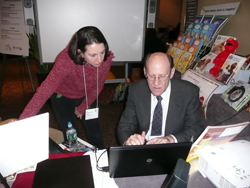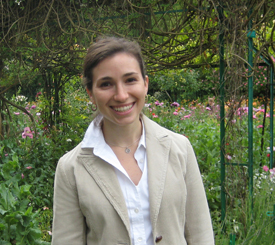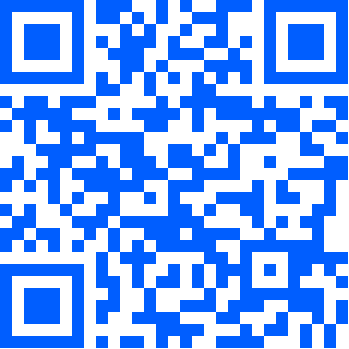BE HAPPY, IT'S PURIM!
Purim Activities for You: Try This Sephardic Tradition
Plus, loads of links and ideas for schools and home
 Did you know that Sephardic Jews (traditionally from Africa, Spain and Portugal) have a special tradition for Purim? It is their custom to wrap pastry dough around a decorated hard-boiled egg to create the shape of a Purim character or an animal. After baking, these artistic creations, or Folares, are displayed with pride and eaten with delight. To see an example of a Folar, click here.
Did you know that Sephardic Jews (traditionally from Africa, Spain and Portugal) have a special tradition for Purim? It is their custom to wrap pastry dough around a decorated hard-boiled egg to create the shape of a Purim character or an animal. After baking, these artistic creations, or Folares, are displayed with pride and eaten with delight. To see an example of a Folar, click here.
Here are some other ideas for creating a rewarding Purim experience for your students:
- Have your class create its own megillah and stage a reading. Find a good version of the Purim story (the one found in Let's Celebrate Purim is perfect for K-2 students; there is a true-to-text version in Explorer’s Bible 2 that works well for 3rd-5th graders). Assign each student a sentence or two from the story. Distribute paper and have each student copy their sentence(s) and illustrate it with their own drawings. Tape the pages together to create a megillah. Consider arranging the page order from right to left, so it will read like a Hebrew megillah. Now you’re ready for a class megillah reading that includes everyone!
- Have students make sock puppets of the characters in the Purim story. Then let them act out all or parts of the story using their puppets.
- Transform the playground into Shushan. Provide children with crowns, horses, “tea-time” materials, capes, etc., so that they can recreate parts of the Purim story on their own, without teacher direction.
Read MoreSTAFF ENGAGEMENT
An Invitation to Our Survey
Free online tool allows education leaders to assess themselves
By: Terry Kaye 
A few weeks ago I wrote an article about why self-assessment can be scary. I discovered many Jewish education leaders willing to take the chance.
Education directors, heads of day schools, and principals opted to test their own view of their staff’s engagement by responding to a free Education Leader survey prepared by Harold Weinstein of Behrman House Consulting Group. Participants were asked to respond to the survey questions as they thought their teachers would. For example, they rated these statements: “Our school functions with a strong feeling of cooperation and teamwork,” “I am frequently given praise and recognition for doing a good job,” and “My students’ parents respect my role and support the education process.”
You can participate too. The survey remains open until Thursday, March 17 at 5:00 pm. After that, you will receive FREE:
- Your own educational leader survey top-line findings.
- A comparison of your results with a nation-wide aggregate.
The first step to building a dynamic, professional education team is your own perception of how your staff feels about working in your organization. We invite you to take the survey now.
Teaching Tips
How is Hebrew School Like Harvard?
Some educational challenges are the same wherever you are
By: Sunny Yudkoff One of the hardest parts about being a Jewish educator is creating a welcoming environment for students with all different levels of Jewish literacy. Some students come to class ready to recite the Sh’ma backwards and forwards while others arrive who have not yet even been introduced to this classic Jewish prayer.
 While an intern and then editor at Behrman house, I thought about this challenge quite a lot. How could we produce material that would be relevant and interesting to students with a variety of levels of Jewish cultural literacy? How could we work on curricula that would speak to the needs of students who not only had different learning styles but different Jewish backgrounds?
While an intern and then editor at Behrman house, I thought about this challenge quite a lot. How could we produce material that would be relevant and interesting to students with a variety of levels of Jewish cultural literacy? How could we work on curricula that would speak to the needs of students who not only had different learning styles but different Jewish backgrounds?
Currently, I am a TA for a general course in Jewish History at Harvard University. Although my “kids” may be older than those readers of Kol Yisrael and Jewish & Me, they present the same challenge—each student comes to class with a different background in Jewish history and a different set of cultural assumptions. I’d like to share four techniques I’ve learned from pre-school teachers and university professors alike for negotiating the different levels of Jewish literacy that students carry with them into the classroom:
Read More
TAKE A VIRTUAL TOUR
Use Your Smartphone to Enter This Contest
Win a prize as you discover how to fly your students to Israel
By: Jessica Gurtman Can you answer these questions?
- How can you provide a genuinely experiential Israel program for your students without passports or plane tickets?
- What popular website’s technology will your students employ to create their own tours of Israel?
- What Israeli sport will your students discover as they fly from place to place on their Israel discovery tour?

With this QR code you can! To discover the answers to these questions about introducing an Israel experiential learning program in your school, get a QR code reader at the app store on your smartphone, read the code above, and see the results on your phone. Don’t have a smartphone? Email me and I will send you a direct link.
Once you have discovered the answers, you can enter the contest three ways: send an Email with your answers, tweet your answers with #experienceIsrael at the end of your post, or add a comment to our facebook page (Don’t forget to follow and like us while you’re at it!).
We’ll draw five winners at random from the correct entries at each venue (email, twitter, facebook) to receive a fun prize. Hurry, this contest ends Wednesday, March 23.
This Month's Special
Just In Time For Passover: Haggadot At a Great Price
Limited-time offer to help with Passover planning
Whether you are looking for a haggadah to use at home or you need some for a school or congregational seder, we’ve got great options, and right now they are ON SALE.
For orders of fewer than 50 copies, use the code SEDER for an 18% discount on any of our haggadot.
For orders of 50 copies or more, use the code PASS2011 for a 40% discount PLUS free shipping.
Hurry! This offer ends on March 31.
Don’t know which haggadah is right for you? We can help. Just click here.
BLOG UPDATES
New on the Behrman House Blog
Views you can use
Andy Shannon describes two classroom-friendly features of the new iPad2
Jessica Gurtman likes online journals
Yoram Sametz of Jvillage says YOU should blog, too!
Rabbi Mark Levine tells us why we need strong curricula for teaching Israel
Lisa Micley of Babaganewz travels to Israel with other Jim Joseph Foundation Fellows